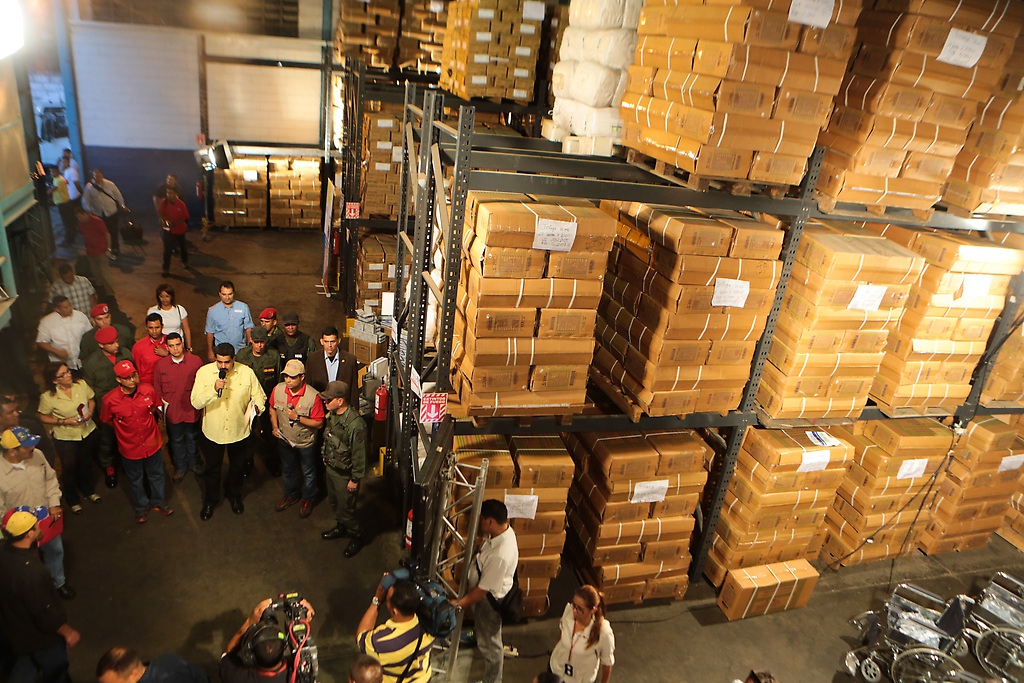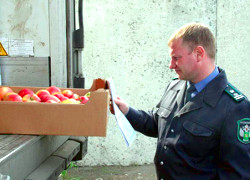Smuggled Cabbage for Kimchi Season
In many regions of North Korea, a lack of fertilizer and the spring drought have resulted in a poor vegetable crop, making kimjang, the preparation of kimchi [a traditional fermented Korean side dish] for the winter, extremely difficult for residents. “The drought this year was so bad and the cabbage is infested with worms; we’ve got a lot of radishes, but not much else,” a source in Yangkang Province reported to the Daily NK on October 30th. “As kimjang season approaches, people are seriously worried about what they’re going to do.” “Some residents, in collusion with military officers and border guards, are bringing in cabbage and other vegetables from China at night to deal with the issue,” he explained.
http://www.dailynk.com/english/read.php?num=12500&cataId=nk01500
Lear MoreIndia proving to be one of the top smuggling paradises on the world map.
In recent years the all-India contraband seizures have jumped dramatically hitting new heights every year. Although these seizures only provide a glimpse into this sordid world through customs or revenue intelligence, there is evidence that the flow of contraband goods into the country via strategically located coastal and border areas is increasing. Bringing in the latest in electronic gizmos, India is proving to be one of the top smuggling paradises on the world map.
At first sight, Kathari, a nondescript fishing village on the Daman coast looks no different from the other coastal villages strung out along India’s extensive coastline: a number of weather-beaten fishing boats sprawled drunkenly on the beach, tattered fishing nets pegged out to dry and a beehive cluster of thatched huts.
However, the customs launch patrolling the coastline a few weeks ago did notice one unusual difference – a homing signal being transmitted from somewhere in the village. Smelling something fishy, the customs party entered the village and traced the signal to a central building comparatively larger than the rest, obviously used as storage space for the day’s catch. Kathari’s fishermen, it transpired, had been using some pretty potent bait. Instead of the expected collection of pungent marine life, the shed was stacked with an assortment of gleaming new electronic goodies, including tape-recorders, calculators and watches. The estimated value of the haul: Rs 5.30 lakh.
Casting their net further, the customs officials discovered that the village’s outward appearance of poverty was rather deceptive. Virtually every family was in proud possession of at least one expensive imported item, ranging from a two-in-one, a Seiko watch to a Japanese umbrella. Kathari, however, is hardly unique and neither is its inconspicuous affluence. It is merely one of the hundreds of strategically-located coastal villages that have, in recent years, been generously “adopted” by smuggling syndicates as convenient conduits for the ever-escalating flow of contraband into the country.
Currently, it is possible to pick up the latest electronic gizmo, whether it is Sony’s new Walkman variant or JVC’s ultra-sophisticated video cassette recorder (VCR), within days of its rolling off the assembly line in Tokyo or Osaka, at any one of the innumerable urban outlets that have mushroomed over the past few years and put India firmly in the running for top seeding as a smugglers’ paradise.
Lear MoreFTDI stops disabling devices with fake chips
Scottish electronics firm FTDI has backed down from a controversial scheme to use a Windows software update to ‘brick’ devices with counterfeit chips.
The Glasgow-based company – which manufactures a USB-to-serial bridge chipset (FT232) used in many electronic devices – included a new driver in a Windows software update that deactivated the chip by setting its ID code to zero if it was found to be fake.
Lear More

1.395 Arrested in Venezuelan Anti-Smuggling Operation
As part of an on-going operation against the hoarding and smuggling of basic goods, Venezuelan authorities have reported that a total of 1,395 people have been arrested for contraband activities.
Of these, 995 remain detained, 332 have been granted bail, 19 will face trial this week and 47 have been freed, said Attorney General Luisa Ortega Diaz on Wednesday.
The anti-smuggling operation was launched by President Nicolas Maduro this summer to prevent food, medical supplies, gasoline and construction materials being illegally transported to neighbouring Colombia, where such goods make a higher profit by avoiding Venezuelan price controls.
http://venezuelanalysis.com/news/10993
Lear MoreNigeria Loses About N15bn Annually To Counterfeit Products – SON
An estimated N15 billion is lost annually to fake or counterfeit products in terms of tax revenue to the government, income to local manufacturers and employment generation to Nigerians.
The director, Legal Services, Standards Organisation of Nigeria (SON), Suleiman Kawo, dropped this hint when the agency hosted the staff and management of the Nigeria Institute of Policy and Strategic Studies (NIPSS), Kuru, who came on a study tour of the agency in Abuja.
Lear MoreChanel files lawsuit against company allegedly infringing on its products
Chanel alleges it has lost thousands of dollars and its consumers’ trust after knock-off brands tried to sell identical products under its name. Chanel S.A. filed a lawsuit Sept. 11 in the Houston Division of the Southern District of Texas against The Individual Partnership.
In its complaint, the French fashion design company alleges the defendants violated its trademark rights when they reproduced counterfeit Chanel trademarks in an attempt to sell products to the public.
https://setexasrecord.com/news/299407-chanel-files-lawsuit-company-allegedly-infringing-products
Lear MoreZimbabwe: Battery Firms Target 90 Percent Capacity
Battery manufacturers are targeting a manufacturing capacity of up to 90 percent by mid next year but lament the effect smuggled products are having on the sector’s performance.
A number of companies have raised the red flag over the continued smuggling of products which include clothes, cooking oil, batteries and tyres into the country.
Local manufacturers bear the brunt of high input costs and face huge costs of capital at a time when the market is flooded by the cheap illegal imports.
http://allafrica.com/stories/201410291176.html
Lear More
Belarusian government agencies involved in smuggling apples to Russia
Russia’s agricultural watchdog Rosselkhhoznadzor revealed new smuggling schemes through Belarus.
Russia continues to receive banned EU products, charter97.org learnt from Rosselkhoznadzor (the Russian Federal Service for Veterinary and Phytosanitary Surveillance).
The agency revealed new illegal schemes of delivering banned EU fruit and vegetable to Russia. The products that were to be delivered from Belarus to Kazakhstan through Russia were sold in Russia. The Main State Inspection on Seed Farming, Quarantine and Plant Protection of Belarus was involved in the scheme.
http://www.charter97.org/en/news/2014/10/29/123276/
Lear MoreChinese artists create counterfeit stock images of artists
Stock Photos are glorious things. Yes, they’re an important tool for sites such as our own, but they’re also, perhaps more often than not, unintentionally hilarious. Services like Thinkstock, Shutterstock and Getty Images have birthed fantastic Tumblrs and Twitter accounts like StockFinds, Completely Unusable Stock Photos, and the somewhat-NSFW Porncomnents. They’re solidly embedded in internet culture, and they’re now also the inspiration behind A Contemporary Portrait of the Internet Artist, a collection of hand-painted copies of stock images of artists created by “underpaid Chinese painters.” The artworks are essentially counterfeits of Getty Images, and in an accompanying press release the team behind the project — the IOCOSE collective — explains the methodology by which they were created will be naturally replicated.
http://www.engadget.com/2014/10/29/chinese-artists-create-counterfeit-stock-images-of-artists/
Lear MoreEast Africa: Philips to Launch Sms Platform to Curb Counterfeit Products
Philips is setting up an SMS platform in a week’s time that will help consumers with the authentication of the Philips Lighting portfolio in case of doubt.
Once the platform is activated, the consumer (in Kenya) will have to send the 16-digit serial number of the lighting product via SMS to 20222 and they will then receive immediate feedback on whether the product they are planning to buy or have bought is genuine or fake. This is a pilot and if successful, Philips will explore rolling it out to the consumer lifestyle product categories.
http://allafrica.com/stories/201410300209.html
Lear More


